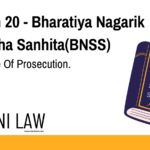Section 436 CrPC: Bail in Criminal Procedure – Cases and Conditions
1. Code:
Section 436 of the Code of Criminal Procedure, 1973 (CrPC) deals with the grant of bail in certain specific cases.
2. Explanation:
This section outlines the conditions under which bail may be granted to an accused person in specific cases where the regular bail provisions under Section 437 or 439 are not applicable.
Section 436 states that if an accused person has been arrested or detained without a warrant and is being taken before a Magistrate, the Magistrate may grant bail to the accused if the Magistrate is satisfied that:
- The accused is not likely to abscond.
- The accused is not likely to tamper with evidence or influence witnesses.
In addition to these conditions, the Magistrate may also consider the following factors:
- The nature and gravity of the offence.
- The antecedents of the accused.
- The likelihood of the accused committing further offences.
- The likelihood of the accused interfering with the investigation.
However, this section specifically states that bail cannot be granted if the accused is charged with an offence punishable with death or imprisonment for life.
3. Illustration:
Imagine a person is arrested without a warrant and brought before a Magistrate. The police suspect the person of theft but haven’t collected substantial evidence yet. The Magistrate, considering the lack of strong evidence and the person’s local ties, grants bail under Section 436, ensuring they return for further investigation.
4. Common Questions and Answers:
Q1: What is the difference between Section 436 and Section 437/439 of CrPC?
A1: Section 436 deals with bail in specific cases where the accused is arrested without a warrant, unlike Sections 437 and 439 which cover general bail applications.
Q2: Can bail be granted under Section 436 if the offence is punishable with death or life imprisonment?
A2: No, Section 436 explicitly states that bail cannot be granted in such cases.
Q3: What are the factors a Magistrate considers while granting bail under Section 436?
A3: The Magistrate considers factors like the likelihood of the accused absconding, tampering with evidence, and the gravity of the offence.






